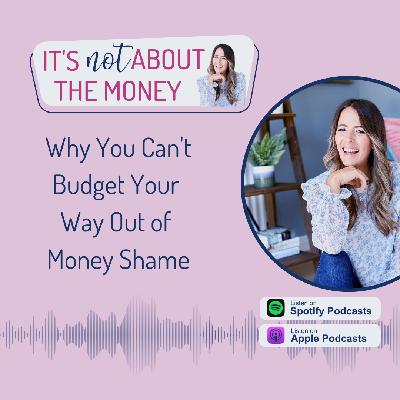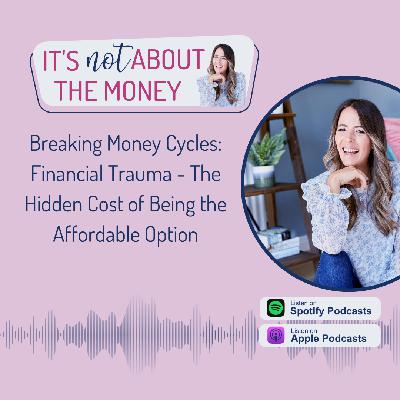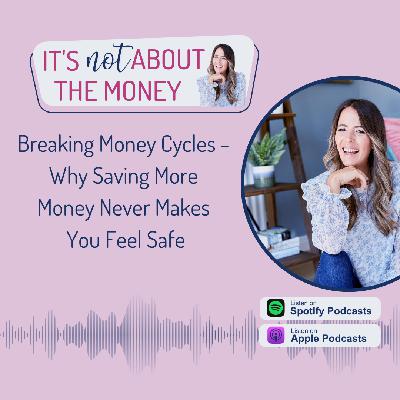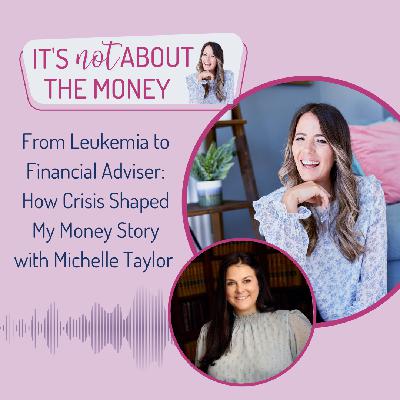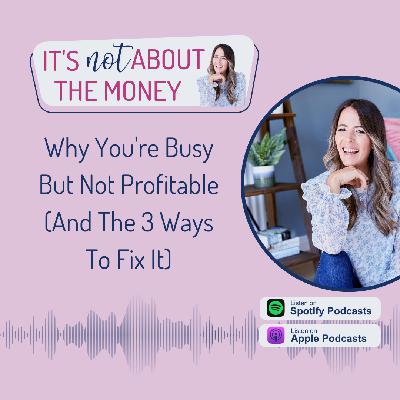Why You Can't Budget Your Way Out of Money Shame
Description
In this episode, I share insights from my recent interview with UK-based global company Agon about the crucial link between mental health and money. Rather than offering quick fixes, I explore the deeper emotional landscape beneath financial anxiety and provide six key questions to help you understand what's really driving your money worries
Episode Highlights:
Understanding the Root of Money Worries
- Money itself isn't usually what we're worried about - it's what money represents
- Common underlying fears: relationship security, business stability, lifestyle changes, and team obligations
- How financial anxiety often stems from deeper meanings we attach to money
- The difference between surface-level money concerns and their emotional foundations
The Emotional Spectrum of Money
- My ladder metaphor: low-vibrational emotions at the bottom (shame, guilt, stress, anger) vs high-vibrational emotions at the top (gratitude, joy, happiness)
- Why jumping straight to gratitude practices doesn't work when you're experiencing financial shame
- The crucial middle step: acceptance of past decisions, inherited beliefs, and trauma patterns
- How the nervous system creates fight-or-flight responses to protect us from perceived financial threats
The Complexity of Money Shame
- Why shame is the hardest emotion on the spectrum to shift
- How shame creates a freeze response in the nervous system, leading to financial avoidance
- Recognising shame through language: the "shoulds" we place on ourselves ("I should be good with money," "I should be further ahead")
- The importance of compassionate acknowledgement without judgement
Money and Neurodiversity
- How traditional financial advice assumes neurotypical learning styles
- Specific challenges for neurodivergent individuals: impulse control, budgeting, long-term planning
- My personal ADHD experience: visual presentations, movement during money conversations, shorter but more frequent meetings
- The correlation between depression, anxiety, and financial avoidance
Beyond Traditional Financial Solutions
- Why practical solutions (budgets, investment plans) don't work without addressing underlying emotions
- The problem with control-based planning when control doesn't feel safe
- How impulsive spending patterns can sabotage investment strategies if safety concerns aren't addressed
- The importance of understanding emotional patterns before implementing financial tools
Professional Development for Coaches
- How coaches can support clients with money conversations without being qualified financial advisers
- The power of holding space for psychological exploration around money decisions
- Tools and frameworks for understanding the patterns behind financial behaviours
- My financial coach certification programme and free 40-minute training
Final Thought
This episode emphasises that healing our relationship with money requires understanding the emotional spectrum beneath our financial behaviours. Rather than bypassing difficult emotions to reach gratitude and joy, lasting change comes through accepting where we are, understanding our protective patterns, and working with our individual psychological makeup.
Chapters
00:00 Understanding Money Worries and Emotions
06:11 The Emotional Spectrum of Money
12:43 Navigating Mental Health and Money Conversations
Resources:
Get my FREE book 'It's Not About The Money'
Take the Money StoryTypes® Quiz
Sign up to my FREE Newsletter
Come to our Wealth Awakening Retreat
Become a Certified Financial Coach
Get Investing with my course - Use code INVEST50OFF2024 for 50% off as a podcast listener.
Watch the FREE masterclass here
Listen to The best way to plan your finances if you have adult ADHD
Listen to How to Manage Money in Business When You Have ADHD
Listen to (Money StoryTypes®) Money Shame & Emotional Spending
listen to my 1 Way To Overcome Money Shame

